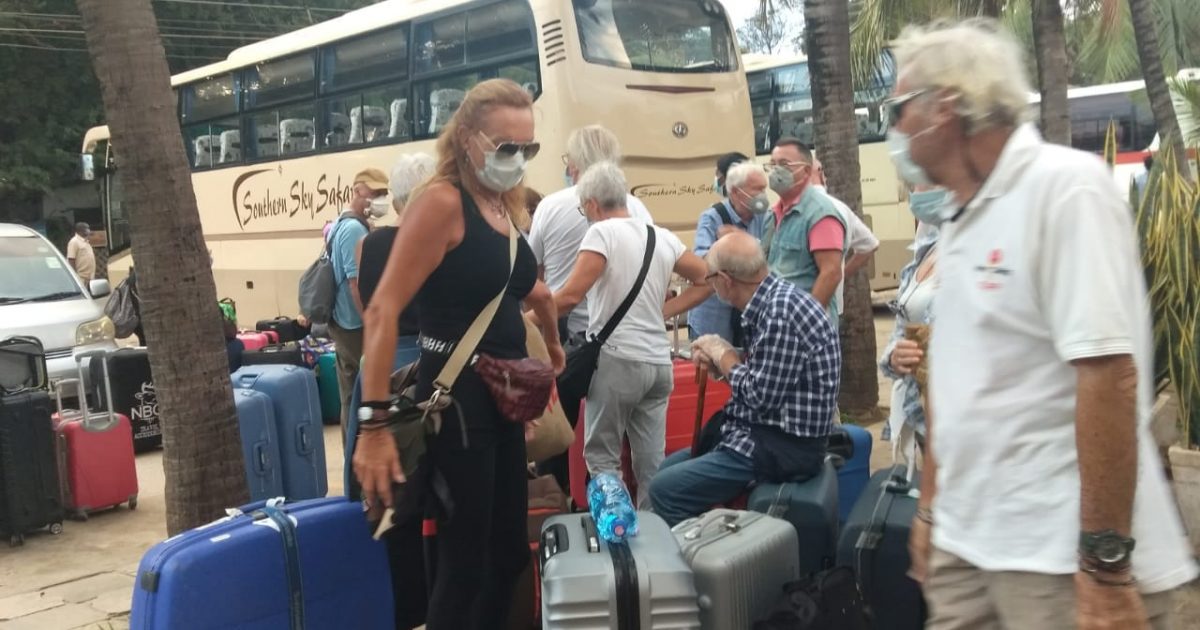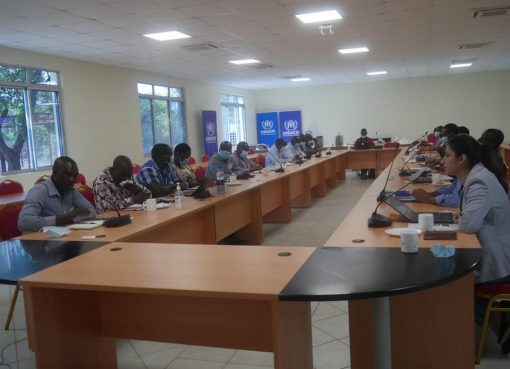The Italian government Sunday started the evacuation of at least 500 Italian tourists who have been stuck in the Kenyan coast tourist resorts following the ban on international flights occasioned by the Coronavirus pandemic.
The first batch of 250 Italian nationals left the Moi International Airport, Mombasa on Sunday while another lot is expected to leave on Thursday this week, an official told journalists in Malindi on Sunday.
The head of the Italian consulate in Malindi, Mr. Freddy del Curatolo, said the Italian nationals were ferried out of the counties aboard eleven buses to Mombasa where they were expected to board a special plane sent by their government.
He said the Italians being evacuated were those that were scheduled to travel back to Italy between March and May, but who could not do so following the ban on international flights occasioned by the novel contagion.
“These are the many Italians who were scheduled to go back to Italy between March and May, but who could not do so following the suspension of international flights on March 25, 2020,” Mr. Curolato said.
He said the operation had been coordinated by the Italian Foreign Ministry through the Italian Embassy in Kenya, who secured two flights to take the Italians back home on Sunday (yesterday) and Thursday, May 21, 2020.
“The flights will take people stuck here in Malindi, Mambrui, Watamu, Kilifi, Mtwapa, Mombasa, Diani and Lamu,” he said.
The move by the Italian government has however dealt a deadly blow to the tourism and hospitality industries in the region which were being sustained by the few Italians stuck in various establishments.
Hotels and tour companies could not be forced to close shop and send home the skeleton workforce they had retained to take care of the stuck tourists.
Many of the hotels had asked their employees to take leave while workers who opted to stay were asked not to leave the establishments at all to prevent spreading the virus as they served the few tourists.
Mr. Philemon Mwavala, the chairman of the Kenya Coast Tourist Association Chairman in the North Coast Region, told journalists on Sunday that the move would not adversely affect the economy of the entire coastal region which largely depends on tourism.
“Tourism and the hospitality sector, in general, are the worst hit so far. It is affecting quite a number of jobs particularly in this coastal area which is dependent on tourism. This will, in turn, affect every other sector within the economy of the coastal region and the country at large,” he said.
A section of hotel workers who spoke to journalists complained that they would be out of employment for longer periods since it is not known when the problem would end and allow tourists to return to the area.
Traditionally, Malindi would be currently in the low tourist season in which a number of employees are laid off till mid-July when tourist numbers start increasing is now not certain when the high tourist season will begin.
By Emmanuel Masha
250 Italians evacuated from Kenya Coastal Counties





